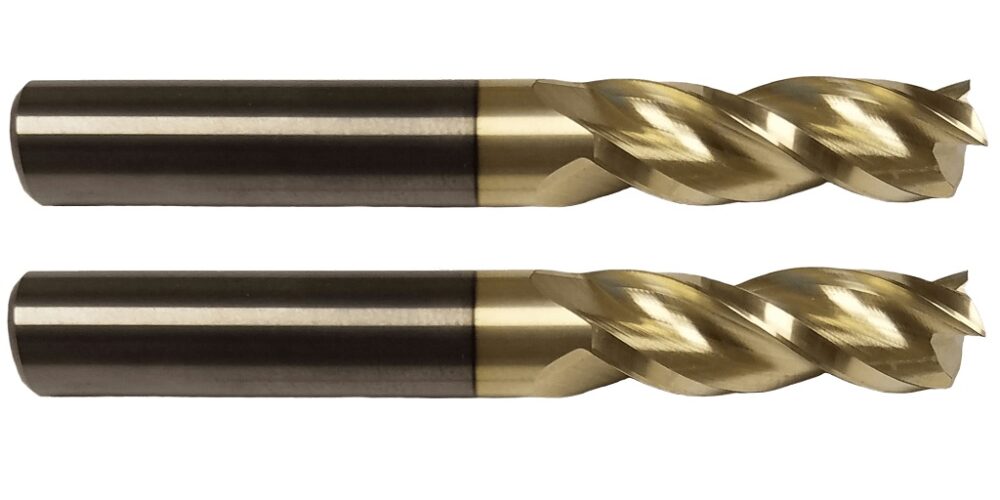Aluminum is a great material for producing custom components because it offers a great balance between being soft enough to machine quickly while also being strong enough for a wide range of applications. If you want to get the most out of your milling machine while working on aluminum, it is important that you use the right tools. End mills for aluminum have to be specially designed to work with this useful material.
While we have already covered that aluminum alloys are great manufacturing materials, they do have their drawbacks. Aluminum is easier to machine than harder metals like iron and steel because it is softer. This softness also makes aluminum extremely flexible. When an end mill cuts into steel, the material is cut away and it quickly snaps off into small chips. When a tool cuts into aluminum, the chips do not break as easily, often forming long strings instead of smaller discreet chips. These larger chips can be difficult to clear from the base of the cutter, which can lead to jams between the tool and the workpiece.
In order to make sure that your next aluminum based project goes well, it’s important to make sure that you are using the proper end mills for aluminum. While end mills designed for cutting steel tend to have a high number of flutes to create more small chips, aluminum cutting tools should actually have fewer flutes than other metal cutting tools. Typically aluminum cutting tools will only have two or three flutes. This provides enough space between the flutes to help eject the larger chips from the base of the cutter.
In addition to having flute designs that are properly spaced, you also need to consider the helix angles of those flutes. Higher helix angles put more upward force on chips. This helps to push the chips away from the cutter more efficiently. While your average end mill will have a helix angle of roughly 30 degrees, aluminum cutting tools typically have high helix angles between 35 and 40 degrees to ensure proper chip evacuation.
Finally, you should look at the materials used to make your tools. Many end mills on the market are made of various steel alloys. While steel is certainly strong enough for machining aluminum, it is far from the best option. Typically if you want tools that are designed to perform and last, then carbide is your best option. Carbide end mills get their cutting power from granules of tungsten carbide that are extremely hard, dense, and nearly impervious to heat. This means that you can run your carbide cutters at high speeds and feeds without sacrificing tool life.
In addition to a solid carbide construction, good end mills for aluminum should also have the right coating. Tool coatings augment the performance of your tools in several ways. Gold colored ZrN is one of the best coating materials for tools that are designed to cut aluminum. It will lower the coefficient of friction on the tool so soft aluminum chips will be less likely to stick to the flutes.
If you are looking for high quality end mills for aluminum, then you need to check out the tools available at Online Carbide. When you visit www.onlinecarbide.com, you will find a great selection of solid carbide milling cutters available at great, manufacturer direct prices. If you have any questions about any of there tools or you are interested in having custom cutters made for your shop, you can reach a member of their team by sending an email to [email protected].












